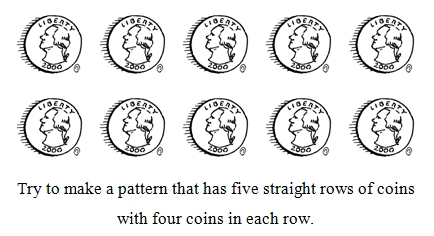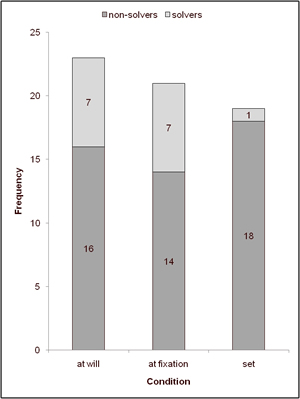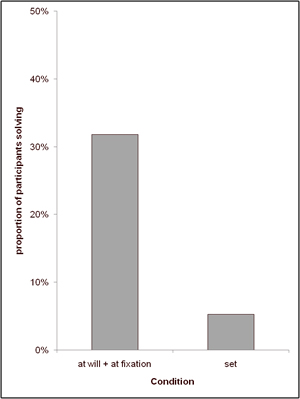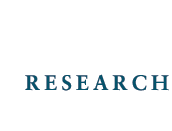| |
|
PROBLEM SOLVING PERFORMANCE

One area of interest is the impact of a break or interruption on problem solving performance. For designers, engineers, and scientists, the problems they work to solve can be difficult and the final outcome is often unknown. Effort on these problems is discontinuous, and the amount of time available to work on projects may conflict with one another. One study with undergraduates (Wood, Kotovsky, & Cagan, 2010) tasked with solving two insight puzzle problems suggests that the ability to allocate one's time freely among both tasks leads to better outcomes than enforcing a schedule for dividing labor between tasks. However, there was no difference in solution likelihoods between those who chose to switch to the task based on either fatigue or impasse on the current problem. This suggests that both strategies are equally effective and may tap a common mechanism.
Current work is interested in learning more about the problem solving
process of groups, and in particular on the relationship between group
convergence and solution quality. Past work in the design literature
suggests that, the more individuals agree about the best approach or
solution to solving a problem, the better that implemented solution tends to
be. This area is being explored to better understand the nature of this
relationship, and potentially develop proscriptive models for group
interaction in problem solving and design tasks.
 
Wood, M. D. (2010, May). Switching strategies for improving problem solving:
Volitional control helps. Paper presented at the 20th annual convention of
the Association for Psychological Science, Boston, MA.
Moss, J., Kotovsky, K., & Cagan, J. (2007). The influence of open goals on
the acquisition of problem-relevant information. Journal of Experimental
Psychology-Learning Memory and Cognition, 33(5), 876-891.
Primary Researcher: MATTHEW WOOD
|
|

